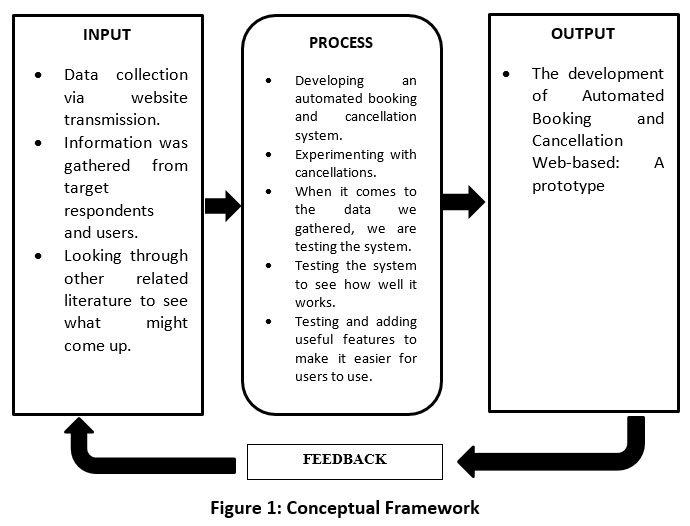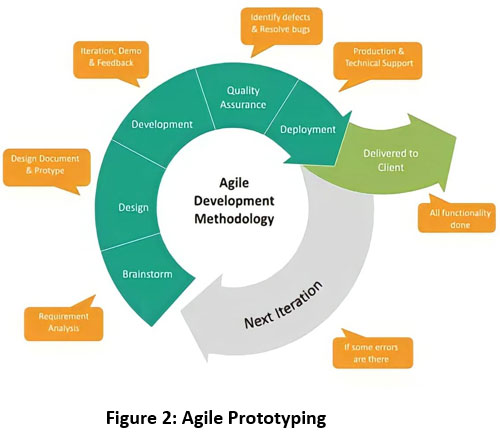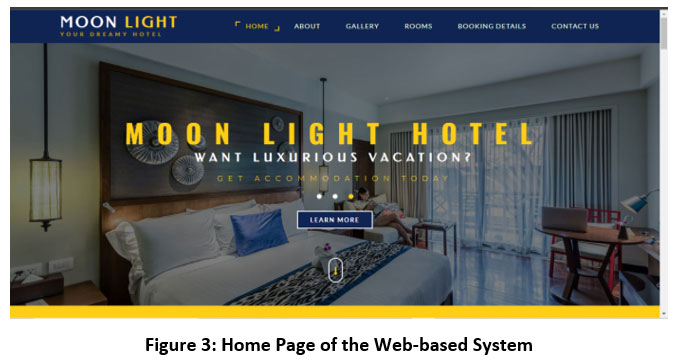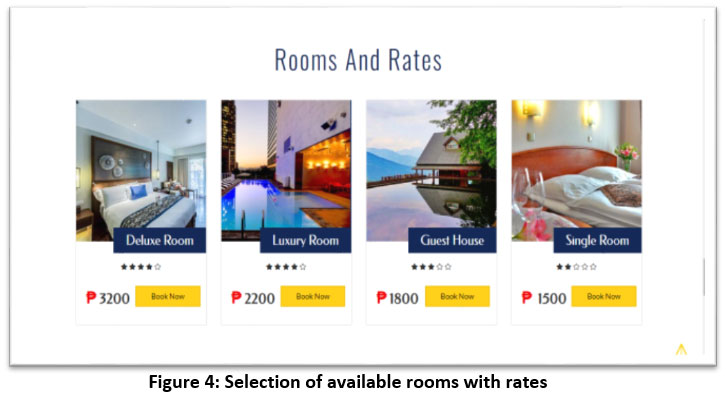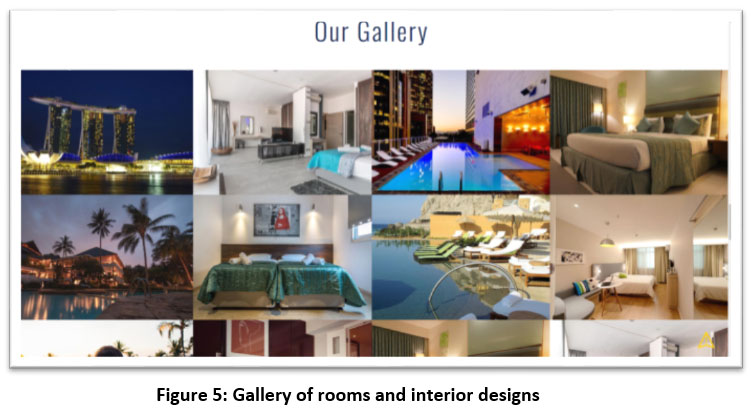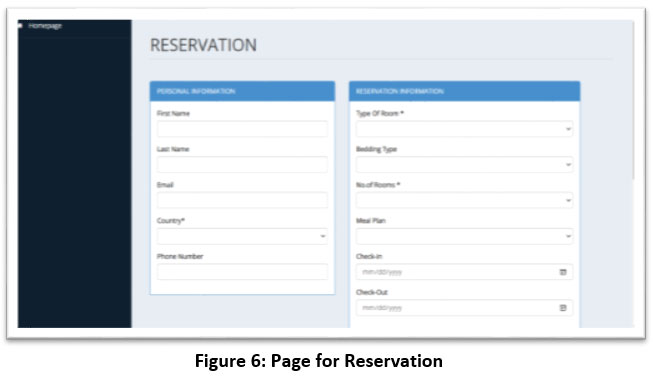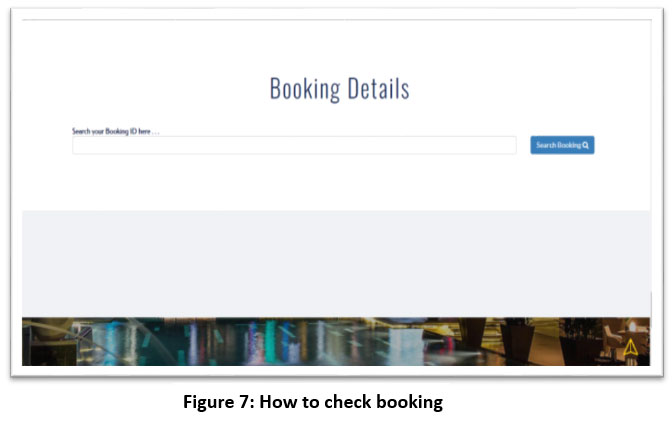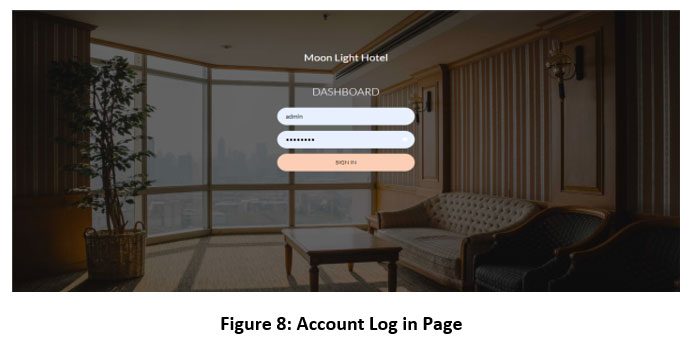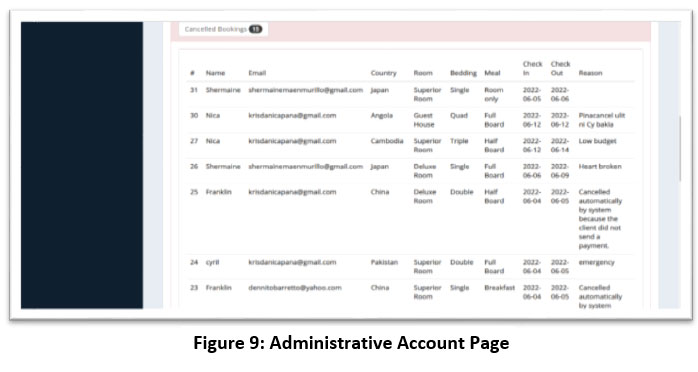Introduction
The coronavirus pandemic has affected so many people, including travel enthusiasts who booked their trips long before an enhanced community quarantine (ECQ) was imposed in the Philippines 1. Apart from flight cancellations and suspended operations of travel-related services, hotel chains have also been shut down. Many guests postpone and cancel their bookings due to the outbreak. In the meantime, they are upholding their commitment to bring light to everyone by sending emails on self-care, sharing positive messages on Instagram with the help of their wellness practitioners, and providing wellness resources for guests through their website 2.
Marriott Hotel Manila Customers who booked a room at Marriott Hotel Manila within the enhanced community quarantine are allowed to cancel or make changes to their reservation by June 30, 24 hours before their arrival date. While the management is updating their website regularly in line with their availability and exclusions, they have decided not to accept bookings, for now, to keep their guests and employees safe from coronavirus. [6] stated as it has always been, the safety and security of our guests and team members remain our highest priority,” Hilton Manila said in a statement, adding that they have strengthened their operating protocols by increasing the number of their cleaning agents and making sure their public areas are sanitized regularly 3.
Other than offering refunds to those affected by the current situation, they also allow free cancellations of reservations made before June 30, 24 hours before their slated arrival. This can also be applied to bookings labeled as “non-cancellable.” For further assistance, Hilton Manila can be contacted at their contact support page or global support numbers 4.
As the Corona Virus spreads over the globe. The hotel business has been one of the industries that will be impacted. Many hotels and restaurants have chosen to close their doors due to the epidemic, which is also required. They don’t want to be infected with the virus that has been spoken of. 1 stated that various hotels have recently opened in Zambales to maintain their operations. Nevertheless, the main problem within Zambales is that they’re not experienced with online cancellation and rather depend on physical cancellation 5.
Booking cancellations already have a well-known body of knowledge in the scope of revenue management applied to service industries, particularly the hospitality industry. Nevertheless, in recent years, with the increasing influence of the internet on the way customers search and buy travel services 1; 6; 12 research revealed that the topic related to controls used to mitigate the effects of cancellations in revenue and inventory allocation, cancellation policies and overbooking 10,13;17. Nevertheless, there are few kinds of literature on the subject of booking cancellation forecasts for the hospitality industry.
This work takes advantage of advanced data science methods to synthesize the current research findings on the development of forecast/prediction models for booking cancellation in the hotel and tourism-related industries and to identify the main topics covered by booking cancellation research
1. To guide the researchers in developing the web-based application and to determine the efficiency of the proposed system, the researchers were conducted by the research paradigm as presented in Figure 1.
The researchers gathered necessary data from the internet through
literature reviews and studies. Information gathered was used by the
researchers to give them an idea about how to develop the hotel cancellation
web-based system and its target beneficiaries. The respondents were identified
based on their characteristics and relevance to the function of the proposed
system. After all the data collection undertakings, the researchers developed a
web-based system and deployed a cancellation procedure within the system.
Testing of the system while the development is undergoing, beta and alpha
testing was done. The identified features were also identified through the
testing. As an output, the researchers successfully developed the prototype
web-based system with cancellation on hotel booking and underwent a survey to
determine its efficiency in the processes.
This research paper aims to discuss the proposed Automated Hotel Booking
and Cancellation Web-based Application and determine its usefulness,
functionality, accuracy, security, reliability, and maintainability from the
survey instrument used by the researchers. This research paper discusses the
software development methodology used and the design or interface of the
proposed system.
Research Objectives
The general objective of this study was to monitor the client’s reservation of the hotel room booked. An automated system was proposed by the researchers to automatically secure and cancel clients’ bookings based on the hotel businesses’ existing policies. Also, the research paper was guided by the following specific research objectives:
To develop a prototype automated hotel booking and cancellation web-based system based on the requirement and specifications of the beneficiaries;
To design a user-friendly interface that users can automatically use the system without being computer literate; and
To evaluate the proposed web-based system based on ISO 25010 software quality standards in terms of:
Usefulness;
Functionality;
Accuracy;
Security;
Reliability; and
Maintainability.
Material
and methods
To make the
hotel management work systematic, standardization and automation achieve the
aim of improving the efficiency of hotel guest room management. This paper used
a mixed-method research design. An applied method was used in designing the hotel
management system; the overall mission of system development was to make the
office staff quickly and easily complete the hotel guest room management task.
The researchers also used a survey questionnaire to identify the efficiency of
the developed system based on ISO 25010 Software Quality Standards. The
researchers also chose a software development methodology to guide the
prototype system’s development and deployment.
To select the target beneficiaries of the prototype system, the
researchers used the purposive sampling technique. The selected respondents are
the executive and employees of a hotel company in Zambales and Olongapo City,
Philippines. The respondents selected private hotels in specific based on the
purpose of the developed web-based system. The respondents were twenty-five
(25) hotel owners, managers, staff, and clients and five (5) IT experts, with a
total of thirty (30) respondents participating in the survey.
The researchers also used the researcher instrument to determine the efficiency
of the proposed web-based system. The instrument was adapted from the ISO 25010
Software Quality Standards with minor revisions. The domain of the instrument
was usefulness, functionality, accuracy, security, reliability, and
maintainability. The researchers checked the validity and reliability of the
survey instrument through Cronbach Alpha testing, with yielded an overall alpha
test result of .72, which is higher than the benchmark value of >.70 to be
valid and acceptable.
The researchers also used statistical tools after gathering the data from
the respondents after the survey. Weighted mean and Likert scale with a 4-point
agreement scale was used by the researchers to analyze the result of the
survey.
System Development and Methodology
Agile is the approach adopted by the researchers for this study. The goal
of this software development methodology was to ensure that the development of
the web-based system conforms with the standards and quality of a hotel booking
system and to fasten the development without considering the proposed
prototype’s efficiency. The agile prototyping methodology is presented in
Figure 2.
Requirement Analysis
The researchers and target users worked closely together to develop device requirements and specifications. The researchers gathered necessary data from the beneficiaries about the process of booking and the policy on the cancellation of bookings.
Design
The researchers created a prototype system at this point. The prototype system was designed based on the specifications given by the target beneficiaries. The user interface was evaluated by IT experts to determine the correctness and user-friendliness of the UI.
Development
At this point, the developers now started to develop both the interface and the database of the prototype system. The database used an entity-relational model to determine the relationship of each entity in the design and to normalize the data input and output of the system.
Quality Assurance
During development, quality assurance personnel reviewed and tested the system to assure its quality and minimize any faults. During this step, the developers automatically corrected system faults. Based on the data gathered from the IT experts who tested the system, minimal errors and corrections were suggested and automatically corrected by the developers.
Deployment
In this stage, the developed prototype was ready to deploy and be tested by the target beneficiaries. The hotel owners, managers, staff, and clients tested the proposed prototype. During the deployment, the survey instructions were also administered to determine the efficiency of the system.
Results and Discussion
The
main objective of this research paper was to develop and propose a prototype
web-based hotel booking and cancellation system for hotel owners. The
researchers conducted a survey to determine the efficiency of the proposed
system based on the ISO 25010 software quality standards. The results of the
survey were presented in the following discussions. The respondents in hotel
business establishments (25) rated the survey, and (5) IT experts with a total
of (30) respondents.
Table 1: Automated Hotel Booking and Cancellation Web-based Application: A Prototyping as Evaluated metrics as to Usefulness Towards System Quality
|
Question
|
Weighted
Mean
|
Interpretation
|
|
The system is accessible.
|
3.87
|
Strongly Agree
|
|
The system easily processes reservation transaction.
|
3.94
|
Strongly Agree
|
|
The system enables a better deal for assured accommodation.
|
3.87
|
Strongly Agree
|
|
Overall Weighted Mean
|
3.89
|
Strongly Agree
|
Legend : 3.26 – 4.00 (Strongly Agree); 2.51 – 3.25 (Agree); 1.76 – 2.50 (Disagree); 1.00 -1.75
(Strongly Disagree
Table 1 presents
the results of the evaluation of the usefulness of the web-based system. The
respondents’ evaluation revealed that the system is accessible with a mean=3.87
or “strongly agree,” the process of reservation is easy with a mean =
3.94 or “strongly agree,”; and the accommodation of the system is
better with a mean = 3.87 or “strongly agree”. The proposed system
gained a total mean = 3.89 or “strongly agree,” indicating that the
system is useful and processes conform to the needs of the users.
Table 2:Automated Hotel Booking and Cancellation Web-based Application: A Prototyping as Evaluated metrics as to Functionality Towards System Quality
|
Question
|
Weighted
Mean
|
Interpretation
|
|
1. The system is user friendly
|
3.90
|
Strongly Agree
|
|
2. The system provides necessary operations needed by the user.
|
3.37
|
Strongly Agree
|
|
3. The system updates hotel rooms status information.
|
3.70
|
Strongly Agree
|
|
Overall Weighted Mean
|
3.66
|
Strongly Agree
|
Legend : 3.26 – 4.00 (Strongly Agree); 2.51 – 3.25 (Agree); 1.76 – 2.50 (Disagree); 1.00 -1.75
(Strongly Disagree)
Table 2 presents
the results of the evaluation of the functionality of the web-based system. The
respondents’ evaluation revealed that the system is user-friendly with a
mean=3.90 or “strongly agree”, the system provides necessary
operations with a mean = 3.37 or “strongly agree”; and the system
updates room status information with a mean = 3.70 or “strongly
agree”. The proposed system gained a total mean = 3.66 or “strongly
agree” indicating that the system function is based on the needs of the
users and the transaction processes very well during the survey.
Table 3: Automated Hotel Booking and Cancellation Web-based Application: A Prototyping as Evaluated metrics as to Accuracy Towards System Quality
|
Question
|
Weighted
Mean
|
Interpretation
|
|
1. The system provides relevant data.
|
3.40
|
Strongly Agree
|
|
2. The system provides legitimate information of the hotel.
|
3.34
|
Strongly Agree
|
|
3. The system keeps detailed accounting record.
|
3.20
|
Strongly Agree
|
|
Overall Weighted Mean
|
3.32
|
Strongly Agree
|
Legend : 3.26 – 4.00 (Strongly Agree); 2.51 – 3.25 (Agree); 1.76 – 2.50 (Disagree); 1.00 -1.75 (Strongly Disagree)
Table 3 presents
the results of the evaluation of the accuracy of the web-based system. The
respondents’ evaluation revealed that the system provides relevant data with a
mean=3.40 or “strongly agree,” the system provides legitimate
information with a mean = 3.34 or “strongly agree,”; and the system
keeps a detailed accounting record with a mean = 3.20 or “strongly
agree”. The proposed system gained a total mean = 3.32 or “strongly
agree,” indicating that the system is accurate with the collected
information and that accounting records were kept properly.
Table 4: Automated Hotel Booking and Cancellation Web-based Application: A Prototyping as Evaluated metrics as to Security Towards System Quality
|
Question
|
Weighted
Mean
|
Interpretation
|
|
1. The system secures user data.
|
3.24
|
Strongly Agree
|
|
2. The system database can easily be backuped.
|
3.00
|
Strongly Agree
|
|
3. The system provides the level of security to the users.
|
3.20
|
Strongly Agree
|
|
Overall Weighted Mean
|
3.15
|
Strongly Agree
|
Legend : 3.26 – 4.00 (Strongly Agree); 2.51 – 3.25 (Agree); 1.76 – 2.50 (Disagree); 1.00 -1.75
(Strongly Disagree)
Table 4 presents
the results of the evaluation of the security of the web-based system. The
respondents’ evaluation revealed that the system secures users’ data with a
mean=3.24 or “strongly agree”, the system database can easily be
backed with a mean = 3.00 or “strongly agree,”; and the system
provides a level of security to the users with a mean = 3.20 or “strongly
agree”. The proposed system gained a total mean = 3.15 or “strongly
agree” indicating that the system can provide security to the user’s
information and data within the system.
Table 5: Automated Hotel Booking and Cancellation Web-based Application: A Prototyping as Evaluated metrics as to Reliability Towards System Quality.
|
Question
|
Weighted
Mean
|
Interpretation
|
|
1. The system provides information sent to customer’s email.
|
3.84
|
Strongly Agree
|
|
2. The system process user’s request upon request.
|
3.24
|
Strongly Agree
|
|
3. The data provided by the system are reliable.
|
3.34
|
Strongly Agree
|
|
Overall Weighted Mean
|
3.46
|
Strongly Agree
|
Legend : 3.26 – 4.00 (Strongly Agree); 2.51 – 3.25 (Agree); 1.76 – 2.50 (Disagree); 1.00 -1.75
(Strongly Disagree)
Table 5 presents
the results of the evaluation under the reliability of the web-based system.
The respondents’ evaluation revealed that the system provides information sent
to the customer’s email with a mean=3.84 or “strongly agree,” the
system processes the user’s request with a mean = 3.24 or “strongly
agree,”; and the system provides reliable data with a mean = 3.34 or
“strongly agree.” The proposed system gained a total mean = 3.46 or
“strongly agree,” indicating that the system provides reliable
transactions to the users.
Table 6: Automated Hotel Booking and Cancellation Web-based Application: A Prototyping as Evaluated metrics as to Maintainability Towards System Quality
|
Question
|
Weighted
Mean
|
Interpretation
|
|
1. Maintaining error-free records.
|
3.17
|
Strongly Agree
|
|
2. The system is compatible with any windows operating system.
|
3.47
|
Strongly Agree
|
|
3. Implements a database that predicts cancellation booking information.
|
3.24
|
Strongly Agree
|
|
Overall Weighted Mean
|
3.29
|
Strongly Agree
|
Legend : 3.26 – 4.00 (Strongly Agree); 2.51 – 3.25 (Agree); 1.76 – 2.50 (Disagree); 1.00 -1.75
(Strongly Disagree)
Table 6 presents
the results of the evaluation of the maintainability of the web-based system.
The respondents’ evaluation revealed that the system provides an error-free
record with a mean=3.17 or “strongly agree,” the system is compatible
with any windows operating system with a mean = 3.47 or “strongly
agree”; and the database implements predicted cancellation on booking
information with a mean = 3.24 or “strongly agree.” The proposed
system gained a total mean = 3.29 or “strongly agree,” indicating
that the system provides maintenance and error-free record to the users.
Table 7: Summary of Findings on the Domains Evaluated under ISO 25010
|
Question
|
Weighted
Mean
|
Interpretation
|
Rank
|
|
Usefulness
|
3.89
|
Strongly Agree
|
1
|
|
Functionality
|
3.66
|
Strongly Agree
|
2
|
|
Accuracy
|
3.32
|
Strongly Agree
|
4
|
|
Security
|
3.15
|
Strongly Agree
|
6
|
|
Reliability
|
3.46
|
Strongly Agree
|
3
|
|
Maintainability
|
3.29
|
Strongly Agree
|
5
|
|
Overall Weighted Mean
|
3.46
|
Strongly Agree
|
|
Legend : 3.26 – 4.00 (Strongly Agree); 2.51 – 3.25 (Agree); 1.76 – 2.50 (Disagree); 1.00 -1.75 (Strongly Disagree)
Table 7 summarizes the findings on the domains evaluated based on ISO 25010 software quality standards. Based on the results, the domain under usefulness gained a mean = 3.89 or “strongly agree” and ranked 1 followed by functionality ranked 2, reliability ranked 3, accuracy ranked 4, maintainability ranked 5, and lastly, security ranked 6 with a mean = 3.15 or “strongly agree: respectively. Based on the data gathered, the proposed prototype was useful for hotel bookings and cancellation of bookings. The administrator account tracked the monitoring of canceled bookings for reference.
Sample Screenshot/Output of the Proposed Prototype System
Conclusion
The developed
prototype web-based system was useful and functional to the needs of the target
users/beneficiaries. The IT experts’ feedback and suggestions were helpful
during the testing of the system to correct some errors and align the system’s
processes to the standards set by hotel business owners. The user interface of
the web-based system was user-friendly, representing an object-oriented user
interface for the users. Based on the data gathered from the respondents during
the survey, the web-based system was useful, functional, accurate, secure,
reliable, and can be maintained by hotel business owners.
From the data drawn
from the survey and the conclusions, the researchers recommended using the
proposed prototype web-based system as it shows excellent performance during
the survey. The design met the needs of the target users and was evaluated by
the IT experts as useful and functional. An improvement on the cancellation to
automatically predict cancellations can be incorporated into the system using
Machine Learning Algorithms to ease the process of cancellation being
recommended for future researchers who want to pursue advanced studies about
the topic.
Acknowledgement
The researchers would like to
acknowledge the help of the following that made this research paper possible.
To the business owners who lend their time to evaluate and share their ideas
about the transactions and processes of hotel bookings. To PRMSU for allowing
the researchers to pursue this kind of research paper. Lastly, to almighty God
for the knowledge and strength given to us to finish this research study.
Conflict
of Interest
The authors
hereby declare no conflict of interest in pursuing this research study.
Funding Source
The authors did
not receive any funding or financial assistance in pursuing this research
study.
References
- Anderson, C., Brion, S., Moore, D. A., & Kennedy, J. A. (2012). A status-enhancement account of overconfidence. Journal of Personality and Social Psychology, 103(4), 718–735. https://doi.org/10.1037/a0029395
CrossRef - Antonio et al.,2017. Predicting hotel booking cancellations to decrease uncertainty and increase revenue. Tourism & Management Studies, https://doi.org/10.18089/tms.2017.13203
CrossRef - Antonio, N., de Almeida, A. and Nunes, L. (2017), “Predicting hotel booking cancellations to decrease uncertainty and increase revenue”, Tourism & Management Studies, (PDF) Predictive models of hotel booking cancellation: a semi-automated analysis of the literature (researchgate.net)
CrossRef - Antonio, N, de Almeida, A and Nunes, L. (2017). Using data science to predict hotel booking cancellations. In: Vasant, P and M, K (eds.), Handbook of Research on Holistic Optimization Techniques in the Hospitality, Tourism, and Travel Industry. Hershey, PA, USA: Business Science https://doi.org/10.4018/978-1- 5225-1054-3.ch006
CrossRef - Barber, B. M. and Odean, T. (2002), “Online investors: Do the slow die first”, Review of Financial Studies (PDF) Modelling the cancellation behaviour of hotel guests (researchgate.net)
CrossRef - Chen, Y., Fay, S., Wang, Q., (2011). The Role of Marketing in Social Media: How Online Consumer Reviews Evolve, Journal of Interactive Marketing, Volume 25, Issue 2, Pages 85-94, https://doi.org/10.1016/j.intmar.2011.01.003.
CrossRef - DeKay, F., Yates, B. and Toh, R. S. (2004), “Non-performance penalties in the hotel industry”, Hospitality Management, Vol. 23, pp. 273-286.
CrossRef - Delgado, P. (2016), “Cancellations shooting up: implications, costs and how to reduce them”, available at: https://www.mirai.com /blog/cancellations-shooting-up- implications-costs-and-how-to-reduce-them/
- Demirkan, H and Delen, D. (2013). Leveraging the capabilities of service-oriented decision support systems: Putting analytics and big data in cloud. Decision Support Systems, https://doi.org/10.1016/j.dss.2012.05.048
CrossRef - Hayes, D. and Miller, A. (2011) Revenue Management for the Hospitality Industry. John Wiley & Sons, Hoboken, NJ.
- Holsapple, C, Lee-Post, A and Pakath, R. (2014). A unified foundation for business analytics. Decision Support Systems, https://doi.org/10.1016/j.dss.2014.05.013
CrossRef - Hossein Nezakati, Asra Amidi, Yusmadi Yah Jusoh, Shayesteh Moghadas, Yuhanis Abdul Aziz, Roghayeh Sohrabinezhadtalemi, (2015). Review of Social Media Potential on Knowledge Sharing and Collaboration in Tourism Industry, Procedia – Social and Behavioral Sciences, Volume 172, Pages 120-125, https://doi.org/10.1016/j.sbspro.2015.01.344.
CrossRef - Ivanov, S., (2014). Hotel Revenue Management: From Theory to Practice. 10.13140/RG.2.1.2714.8960.
- Morales, DR and Wang, J. (2010). Forecasting cancellation rates for services booking revenue management using data mining. European Journal of Operational Research, 202(2): 554–562.: https://doi.org/10.1016/j.ejor.2009.06.006
CrossRef - Nunez-Mir, G.C., Lannone, B.V., Pijanowski, B. C., Kong, N. & Fei, S. (2016). Automated Content Analysis: Addressing the Big Literature
- Shmueli, G and Koppius,( 2011). Predictive analytics in information systems research. Mis Quarterly https://doi.org/10.2307/23042796
CrossRef - Talluri, K. and G. van Ryzin., (2004a). The Theory and Practice of Revenue Management. Kluwer Academic Publishers, Norwell, Massachusettes
CrossRef

This work is licensed under a Creative Commons Attribution 4.0 International License.
 , Cyrel B. Alvarez, Shermaine B. Murillo , Aubrey Jaye S. Tuzon and Kris Danica P. Paña
, Cyrel B. Alvarez, Shermaine B. Murillo , Aubrey Jaye S. Tuzon and Kris Danica P. Paña

